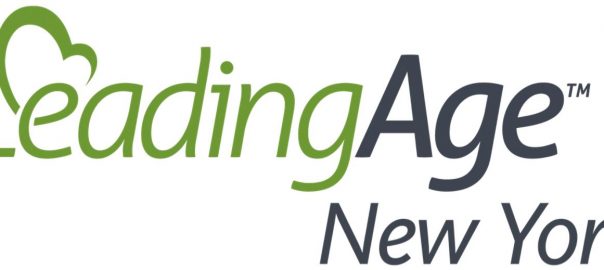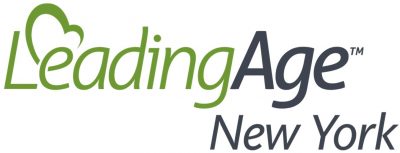
DEPARTMENT OF HEALTH’S $17 BILLION MEDICAID WAIVER PROPOSAL MISSES OPPORTUNITIES TO SUPPORT LONG TERM CARE: LEADINGAGE NEW YORK ANALYSIS

Opportunity for Reprioritization of Policies, Rather than Repeat of Pattern of Neglect
New York State must make long term care (LTC) a top priority for allocation of resources under its proposed $17 billion Medicaid waiver in the wake of the COVID-19 pandemic, urged LeadingAge New York in a letter to Health Commissioner Dr. Howard Zucker. LeadingAge New York, an advocacy organization for not-for-profit and public LTC providers, is calling on the Hochul administration to correct the failed policies of the prior administration and ensure that the LTC sector has critically needed funding to serve the state’s growing population of older adults and others in need of LTC. More specifically, LeadingAge New York is pressing the State to modify its proposed waiver concept paper to recognize and rectify the devastating impact of the pandemic on older adults and the LTC providers that serve them.
“Among the greatest policy failings of the Cuomo administration was its neglect of the LTC sector,” said James W. Clyne Jr., President and CEO of LeadingAge New York. “They imposed deeper Medicaid cuts on LTC than any other health care sector, while denying LTC providers the investments awarded to other types of providers. Even at the height of the pandemic, the Cuomo administration cut Medicaid reimbursement by 1.5 percent, when other states were pouring resources into LTC.”
In a six-page letter to Commissioner Zucker, LeadingAge New York’s Clyne outlined the failure of New York to adequately support financially strained LTC providers, resulting in two out of three not-for-profit nursing homes operating at a loss, along with an astounding 90 percent of public homes, including most of the veterans’ homes operated by the Department of Health. The letter charged that the proposed waiver outlined in a concept paper released last month once again overlooks the needs of vulnerable older adults and people with disabilities who require LTC services and who were disproportionately impacted by the pandemic. It noted that workforce challenges are already forcing LTC providers to suspend admissions and that financial challenges are growing.
“Governor Hochul’s first weeks in office demonstrate a change – and we are hopeful she will bring a new perspective to those who are aging or have disabilities and rely on LTC,” Clyne continued. “In addition, LTC providers are in peril. We cannot continue to think that lip service and tokens will solve a problem at the breaking point.”
LeadingAge New York’s analysis of the 1115 concept paper also identifies shortcomings in areas such as:
- Reliance on Value-Based Payment initiatives that failed to provide new resources for LTC under the prior waiver;
- Failure to recognize the role of senior services, affordable senior housing, assisted living programs and adult day health care in addressing the social determinants of health for seniors;
- Erroneously assuming that nursing home residents could be appropriately served in supportive housing and overlooking assisted living programs and affordable senior housing as options for older adults who do not require nursing home care;
- Failure to dedicate resources for LTC facilities, analogous to resources dedicated to hospitals, to strengthen infection control and IT and update infrastructure such as HVAC systems and single occupancy rooms.
Instead, LeadingAge New York calls for substantial investments in LTC that support access to a range of services to meet varying levels of acuity and lifestyle preferences and that expand the LTC workforce. It also urges policies and resources to support the integration of long-term and post-acute care with services along the health care continuum to ensure that transitions from one level of care to another are seamless and that whole people are treated – not just diseases.
* * *
LeadingAge New York represents not-for-profit, mission-driven and public continuing care providers, including nursing homes, senior housing, adult care facilities, continuing care retirement communities, assisted living and community service providers. LeadingAge New York’s more than 400 members employ 150,000 professionals serving more than 500,000 New Yorkers annually.
